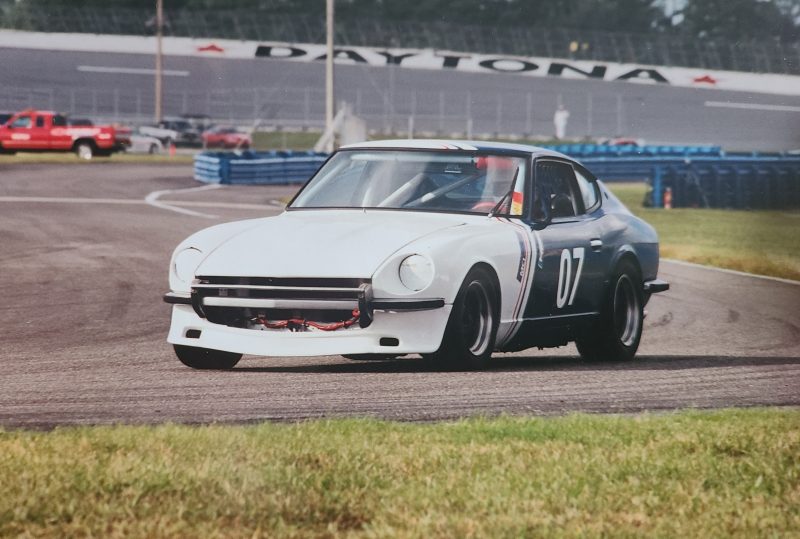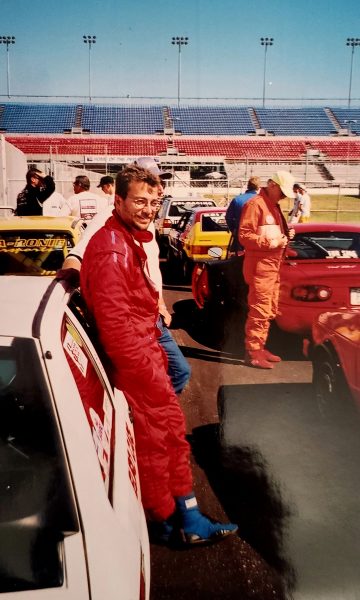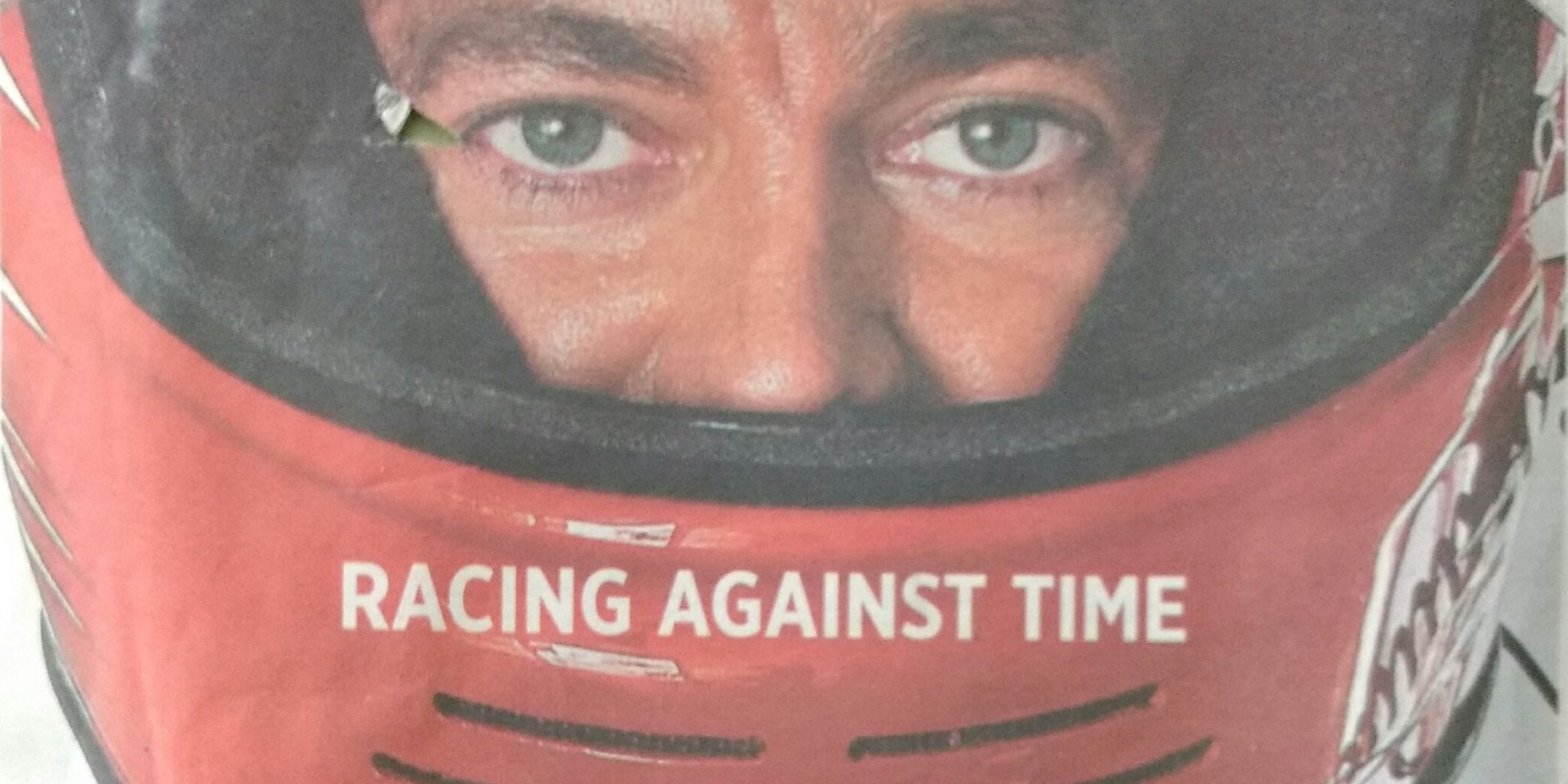Spotlight: Evan Darling talks 90s American racing scene
For LGBT+ History Month, Shayni Solanki had a chat with Evan Darling, one of the first openly gay men in the American racing scene. With a career fluttering between racing and coaching, Darling talked about his experience coming out, and being out, as a gay race car driver in the ‘90s and early 2000s.
Darling began racing BMX bikes as a kid, turning his passion into a career that eventually saw him competing in the Grand-AM Road Racing Championship. The Colorado-based driver started as a young and keen racer, jumping from autocross to professional track racing. Travelling widely, stopping off in places like New York and Florida, he ventured all over the country trying to put his name on the map.
In the ‘80s, Darling was outed as gay to his family, and then to the sport he loved in the early 2000s. His world was flipped upside down, causing him turmoil in his early racing days. He told Racing Pride: “I was always a very confident and competitive person but I did have to overcome a lot of negativity when I came out.
It’s a wealthy man’s sport, and it had some stereotypes attached to it
He shared: “When I was racing, I felt like I was hiding and nervous when I got to the track. But I truly love racing and cars, so I had to dive into that aspect. When I realised that I was good, it made it all the better and I could overcome that struggle.”
For the most part, those in his circle were supportive of him. Walking through the paddock, however, Darling was often scrutinised and even ridiculed for his sexuality. He felt very conscious that the American racing scene in the ‘90s had a traditionalist mentality, for the most part, which was uncomfortable for him.

“The main team that sponsored the event were placing bets against me and making fun of me behind my back. I knew that they were mocking me and they would be embarrassed when I found out, but it wouldn’t stop. It was just the way they were then – straight, white, really wealthy, bigoted people. It’s a wealthy man’s sport, and it had some stereotypes attached to it,” he said.
Not fitting into that standard box of being a straight, white, wealthy male that the 90s scene would expect of a young racer, Darling embraced it instead. Pushing himself to win races, he picked up as many wins as possible, in part motivated by the attempt to prove toxic masculinity wrong. Proud that he wasn’t the typical driver, he overcame that fear to hide his sexuality.
“I went to the races with whoever I was dating and took him for rides when I could. I also received quite a few emails from just random people saying that I shouldn’t have to do this and prove myself. There were a lot of positives and I got a lot of people thanking me, which was great.”
After a rough season, with the crash of the American financial market in 2008, Darling was dropped by his sponsors. Now, he’s looking to get back on track while also helping the younger generations of American LGBTQ+ racers. With a car club for LGBTQ+ drivers, he can finally make a difference in the tough American scene.
It’s like an old-guard, old-school sport here

“Having a car club is such a cool and positive thing. We show people that you can put that dark cloud away and just enjoy your environment. But, there still is a lot of division in the racing scene. It would be nice to band together and show that we don’t all fit into stereotypes.”
Despite his efforts, Darling still believes that racing culture in the US has a long way to go. “There’s not a lot of growth. The culture of young people is not really conducive to racing, because it’s like an old-guard, old-school sport here,” he said. “I think the attitudes have remained the same. It’s just amplified. If anything, it was more accepting back then because people just didn’t know and when they found out it was, in such a smaller circle. Now everything is online.”
With a long way to go before the American racing scene becomes as accepting as most people would like, the silver lining is that racers like Evan Darling are there to pave the way. Providing a safe space for young drivers banking on his own experience, Darling will hopefully pioneer a path for young LGBTQ+ drivers in the US.
Author: Shayni Solanki



